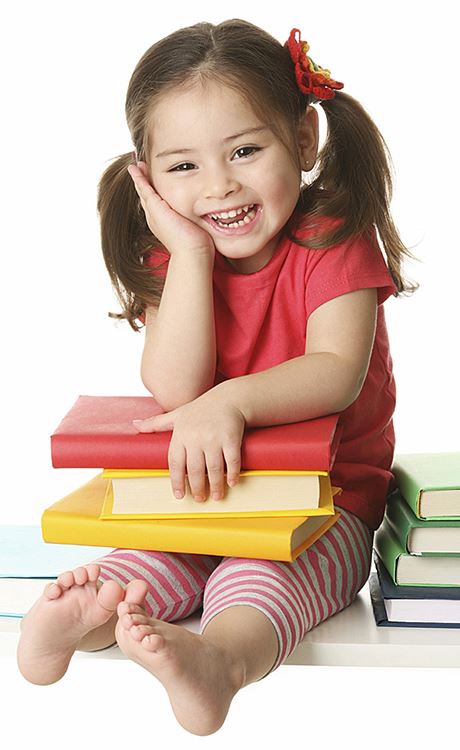Preparing for Kindergarten

-
We know how important parents and families are when it comes to preparing students for Kindergarten. There are many activities and experiences you can provide your child that will help them develop school readiness skills. Here are our top 5 suggestions for preparing your preschool child for success in Kindergarten:
#1: Read to your child daily
Reading to your child will help them develop language skills and motivation to want to learn to read. Try a variety of books including story picture books, non-fiction, poetry, magazines, etc. Talk about the story as you read it and encourage your child to ask questions and discuss how they feel about each story and share what they've learned. The most important thing you can do for your child to prepare them for learning is to read to them 20 minutes or more every day.#2: Develop fine motor skills
Fine motor skills play an important role in helping your child to function as a writer in kindergarten. Allow them access to school tools to help develop motor skills (pencils, pens, crayons, scissors, glue, etc.). Drawing, coloring, cutting and writing are important skills that require practice before coming to kindergarten. It is helpful to have your child know how to write his/her name when they come to kindergarten. Encourage your child to write his/her name using a capital letter for the first letter and the rest in lowercase. There are several fun and playful ways to help your child strengthen finger muscles (fine motor skills). Please see the attached document for ideas.#3: Letter knowledge
Although we do not expect students to come to us knowing how to read, it is helpful for them to be familiar with letters and letter names. Through reading with your child, you can help them to recognize that letters and words have meaning. When helping your student learn letters, start with the letters in his/her name and keep sessions of practice short and playful. Building letters out of dough or blocks, finding them around the house or town, tracing them and writing them are all good ways to help students become familiar with letters. Once your child is comfortable with letter names, you can help them in learning the letter sounds. Visit our Letter Skills page for more resources and online games.#4: Introduce numbers and early math skills
Your home is a great place for you to begin to explore and talk mathematics with your child. Incorporate math skills into your daily routines to help your child see how math works in everyday life and develop number sense. There are many games and activities to help develop math skills such as sorting, matching, comparing, arranging, etc. Help your child recognize numbers and where they are in the environment. Here are some guidelines for what math skills students should know before kindergarten:
*Counting from 1-10
*Recognizing some of the numbers 0-10
*Counting sets of objects up to 10 (one-to-one correspondence)
*Spatial relationships (over, under, up, down, in, on, above, below)
*Familiar with shapes and names of shapes (circle, square, triangle, rectangle)
*Familiar with colors and color names
*Can compare items (same, different, bigger, smaller, longer, shorter, etc.)
*Can sort objects by color, size, and shape#5: Increase vocabulary and oral language skills
Talking to and with your child is important in developing important communication skills. Reading books and talking about what is read will help develop these skills, as well as talking to your child throughout the day. Find ways to introduce your child to various vocabulary terms and different ways to say things. For example, think of other ways to say, "Pick up your toys"; "Time to tidy up the room", "Remove your toys from the floor", "This room is a disaster, so we need to fix it", etc. There is a lot of research on the importance of talking to young children and the role it plays in helping them develop into better reader and writers with command of the language. See this research and intervention for more information: The Talking Cure Article.
Preparing for Kindergarten Links and Documents
-
Kindergarten here we come! Presentation
PDF Presentation created by the state office on ways to help your child prepare for kindergarten. Includes some resources and tips.
-
Kindergarten, Here We Come!
Pamphlet from the state about getting ready for kindergarten. Links to a printable color PDF.
-
Reading Tips for Parents of Preschoolers
Reading Rockets article with some suggestions to make the most of the time you have reading with your child each day.
-
UEN Kindergarten Readiness Checklist
A page of resources and ideas connected to the state pamphlet to support your child with practicing suggested skills in preparation for kindergarten.
-
Utah Early Childhood Core Standards
Parents are the first teachers! This document shares preschool standards with strategies and activities. This document was developed as a communication tool for parents and preschools about what appropriate expectations and skills are for the 3-5 year old age group.

